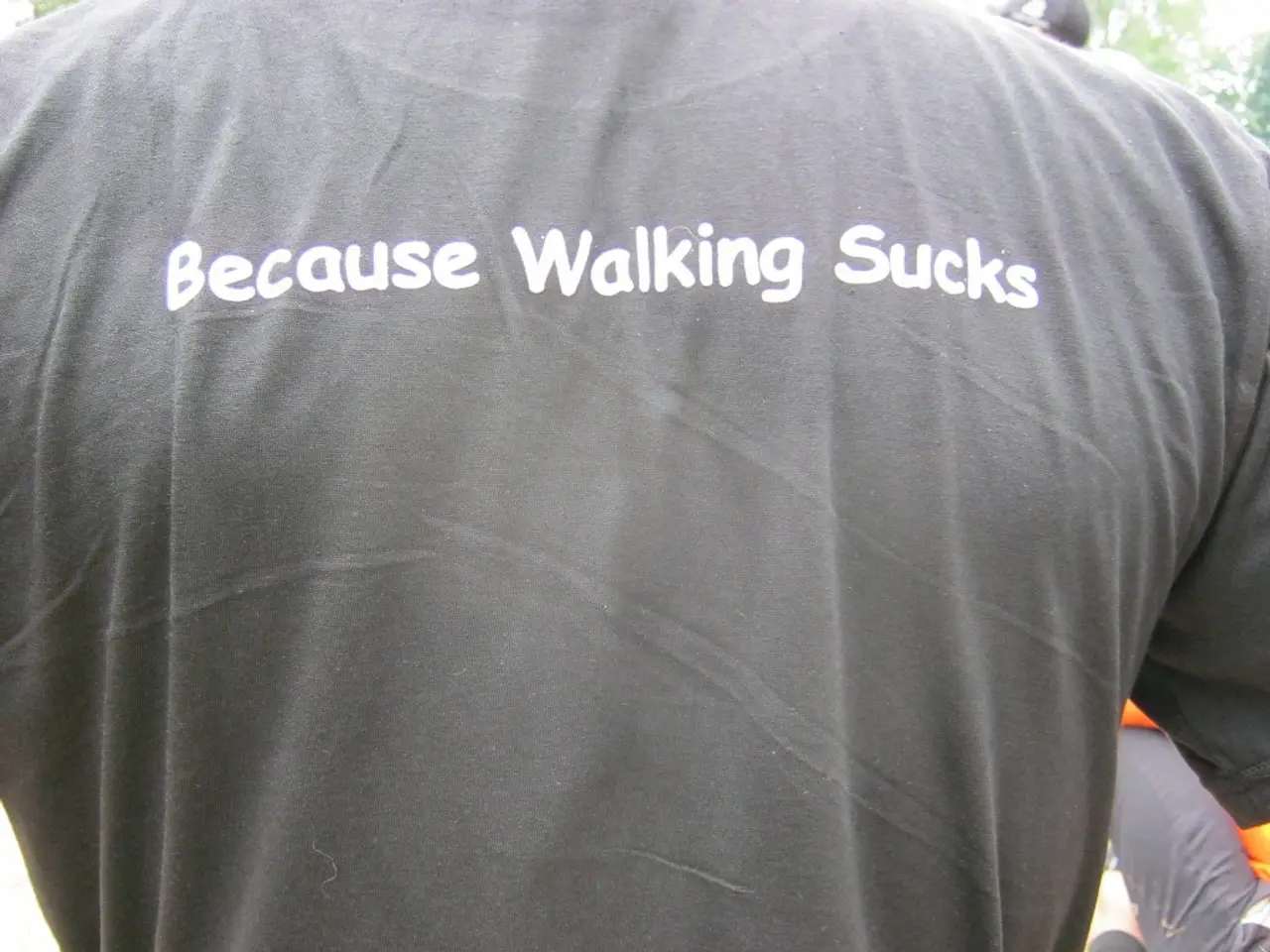Briskwalking may extend your lifespan, reveals a recent study - Just 15 minutes daily is sufficient for a positive impact
A study conducted by Vanderbilt University has found that fast walking for at least 15 minutes a day could offer a powerful and accessible way to improve overall health and increase lifespan. The study, published in the American Journal of Preventive Medicine, suggests that brisk walking could reduce the risk of premature death by nearly 20%.
The study, which tracked nearly 85,000 people over 16 years, found that fast walking is particularly effective in reducing premature death from cardiovascular disease, the leading cause of death in the U.S. This benefit was significantly greater than that of slow walking for longer durations, which was linked to only about a 4% reduction in mortality.
Key health benefits found in the study include improved longevity, cardiovascular protection, accessibility, and consistency of benefits across lifestyle factors. Just 15 minutes of brisk walking daily markedly lowers the risk of death from any cause. Fast walking enhances heart efficiency and output, helping reduce mortality from heart disease by lowering obesity and associated risk factors like high blood pressure and cholesterol.
The study’s large cohort mainly comprised low-income and Black adults—populations often underrepresented in exercise research—highlighting fast walking as an effective, low-cost health intervention without the need for a gym or equipment. The mortality reduction effect of fast walking was robust even after adjusting for other physical activities and leisure time efforts.
Dr Wei Zheng, who led the study, stated that while 150 minutes of moderate activity a week is ideal, fast walking for as little as 15 minutes a day shows significant benefits. Good form during brisk walking includes standing tall, shoulders back, swinging arms in time with steps, and practicing nasal breathing to regulate blood pressure. So, strut your stuff and start walking briskly today!
It's worth noting that the study also suggests that brisk walking could lower blood pressure, improve cholesterol levels, reduce the risk of cancer, prevent type 2 diabetes, boost immunity, and protect against dementia. However, these benefits were not the primary focus of the study.
In conclusion, brisk walking for just a short daily duration could offer a powerful, widely accessible way to improve overall health and increase lifespan, especially important for underserved populations. So, put on your walking shoes and get moving!
- The study published in the American Journal of Preventive Medicine indicates that brisk walking not only improves longevity and cardiovascular health but also reduces the risk of premature death by nearly 20%.
- The health benefits of brisk walking extend beyond cardiovascular protection, as it could potentially lower blood pressure, improve cholesterol levels, reduce the risk of cancer, prevent type 2 diabetes, boost immunity, and protect against dementia.
- Incorporating brisk walking into one's daily routine, as simple as 15 minutes a day, can be considered a practical and effective strategy for workplace-wellness and overall health-and-wellness, especially for underserved populations.




